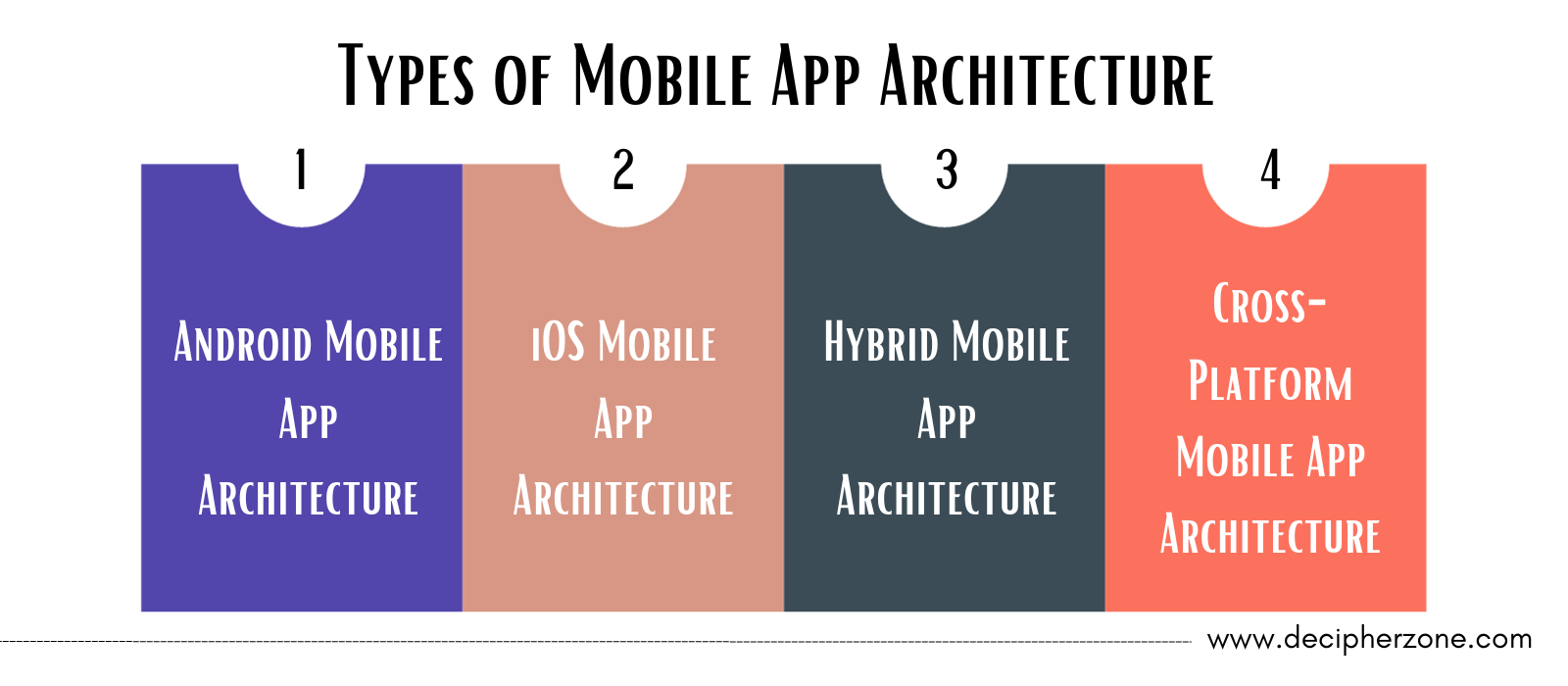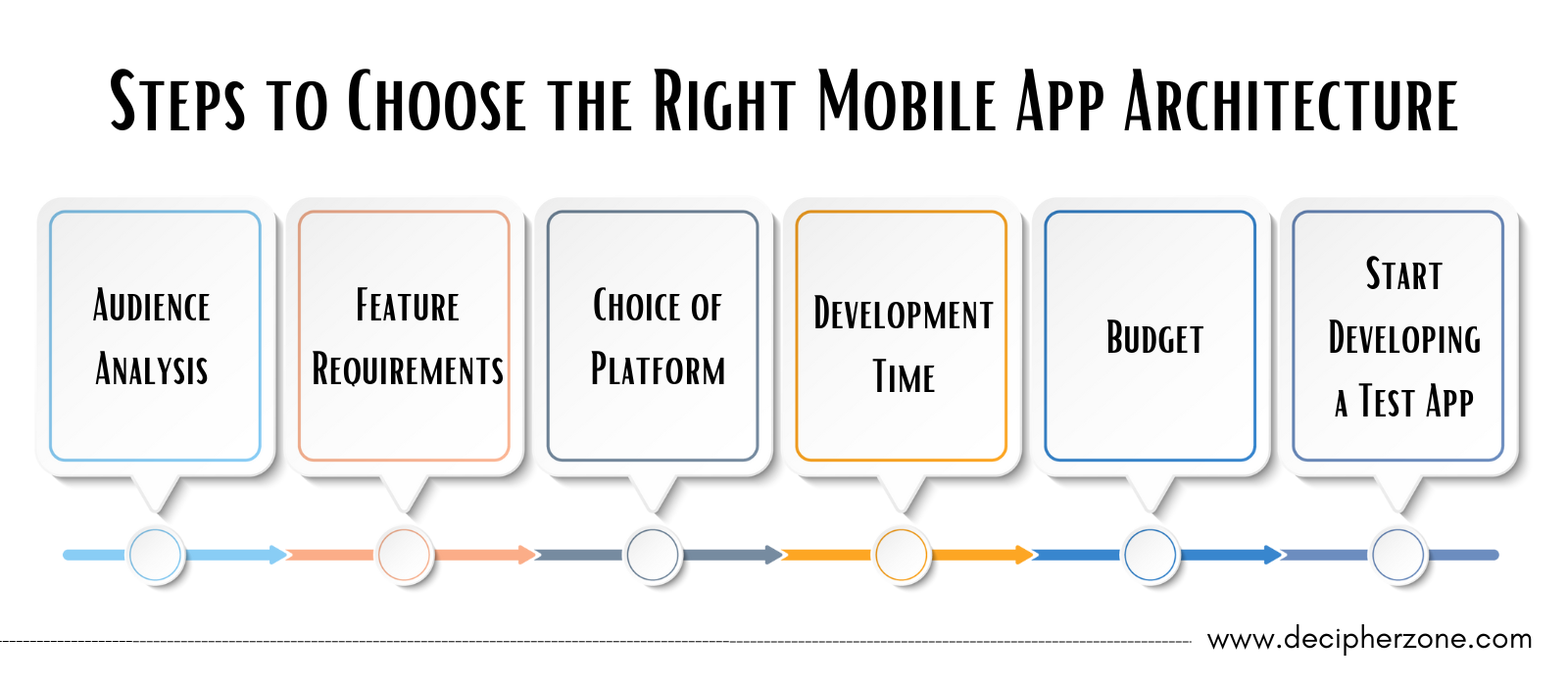Mobile App Architecture - A Comprehensive Guide. The demand for mobile apps has been increasing rapidly in the market due to the innumerable benefits they provide.
With the growing number of businesses switching towards mobile app development, it is necessary to take care of the mobile app architecture, which also plays an essential role in making an app successful and delivering the expected results to the clients.
It is one of the primary steps of the mobile app development process, which helps ensure the efficiency, stability, and security of the application. If you are interested in learning more about mobile app architecture, this blog is for you.
What is a Mobile App Architecture?
Mobile app architecture is a set of internal rules, methods, practices, and techniques that are pre-determined and are to be followed while developing a mobile application. In other words, it is also known as the skeleton of a mobile application, which consists of three layers namely the presentation layer, the business layer, and the data layer. It helps the developers develop applications according to the client's requirements and industry standards.
Read more: Web Application Architecture: Types, Benefits and Tools
Types of Mobile App Architecture
Now moving ahead, mobile app architecture is classified into four different types, and they are as follows -
-
Android Mobile App Architecture
-
iOS Mobile App Architecture
-
Hybrid Mobile App Architecture, and
-
Cross-Platform Mobile App Architecture.
Read more: Types of Software Architecture Patterns

How to Choose the Right Mobile App Architecture?
The essential steps that will help you choose the right mobile app architecture are -
-
Audience Analysis
-
Feature Requirements
-
Choice of Platform
-
Development Time
-
Budget
-
Start Developing a Test App
Read more: A Guide To DevOps and Software Architecture

Audience Analysis
In this step, you need to know your target audience very well by identifying their backgrounds, needs, and goals which in turn will help you fulfill their requirements and devise a solution accordingly.
Feature Requirements
Next, shortlist the key feature requirements of your business that you want to integrate into your application, which will also help you determine the platforms for which the app/apps will be developed.
In addition, make sure that you integrate some advanced features like offline functionality, two-factor authentication, and many more alongside making the application SEO-friendly.
Read more: Common Features of Mobile Apps and their Benefits
Choice of Platform
Once you have decided on the feature list, determine the platforms for which the app will be developed so that you can also get clarity on the UI and UX of the application as it may vary depending on the platforms.
Read more: iOS vs. Android: What to Choose for Your Business?
Development Time
Now check the readiness of the mobile app development team and determine the time needed to develop the application based on factors like the features and the complexity of integrating them into the application, and many more. This will also help you make the development process organized and systematic.
Budget
Moving ahead, optimize the budget according to your requirements and check for all the expenses related to developing a mobile app for your business, which will also help in making an informed business decision.
Read more: Mobile App Development Cost - A Comprehensive Guide
Start Developing a Test App
Lastly, start developing a test app, which implies that you can develop an application with the basic features and functionalities and collect valuable feedback to know whether the architecture meets the business requirements or not alongside ensuring positive user experience and feedback.
Factors to Consider when Devising a Mobile App Architecture
Some of the factors that you should consider when developing a mobile app architecture are as follows -
-
Device Determination
-
Bandwidth Status
-
UI/UX Design
-
Navigation Approach
-
Real-time Updates and Push Notifications.
Read more: What is Custom Web App Architecture?
Device Determination
It is one of the most important factors to consider when developing a mobile app architecture as there are different devices available for different platforms like Android and iOS, which also have distinctive screen sizes. It will help you in providing a consistent experience across various platforms and devices alongside a seamless user experience.
Bandwidth Status
This factor helps in providing appropriate services to the users. For example, some places are not up-to-date with the bandwidth, whilst there are also countries with 5G connectivity on the go, which implies that you have to design the application keeping in mind the target location and bandwidth status of the area to ensure an interactive and engaging browsing experience.
UI/UX Design
Design plays an important role in the mobile app architecture to ensure a consistent look and feel across different devices which in turn also helps in ensuring the performance and quality of the application.
Navigation Approach
Another important factor to consider when developing a mobile app architecture is to follow the best navigation practices using different design elements like search, bars, tabs, drop downs, and others which helps in making the app easy to use for its customers, thus enhancing their browsing experience and making it more intuitive and engaging.
Real-time Updates and Push Notifications
Mobile apps act as a direct marketing tool for your business, so when considering mobile app development also make sure that you integrate the real-time updates or push notifications features in such a way that it enhances the interaction on the application alongside making it effective and not annoying to the users.
Read more: Top Mobile App Monetization Strategies to Consider
Wrapping It Up
With mobile users growing daily and businesses and users making the most use of it alongwith ensuring accessibility and convenience, considering developing a mobile application is the right move to make, along with a robust and secure architecture.
Read more: Monolithic vs Microservice Architecture- Pros and Cons
So, why wait, now is the time to start working on your idea!
Connect with us, or hire a mobile app developer, and we, Decipher Zone, will help you devise the best mobile app architecture along with keeping your requirements intact, and deliver a robust, scalable, and secure mobile app for your business at competitive rates.
FAQs about Mobile App Architecture
Why is it important to have a mobile app architecture?
Some of the reasons why having a mobile app architecture is important is because it provides modularity during the development process, and helps ensure data security and integrity, alongwith speed, quality, and scalability of the application.
What are the key principles of mobile app architecture?
The key principles of a mobile app architecture are security, performance, portability, reusability, and maintainability.
How much time does it take to develop a mobile application?
Developing a mobile application may take up to 20 to 25 weeks and sometimes even a year which varies according to factors like the platforms for which you are developing the app, the total number of developers working on the project alongwith their experience and expertise, budget, and so on.

